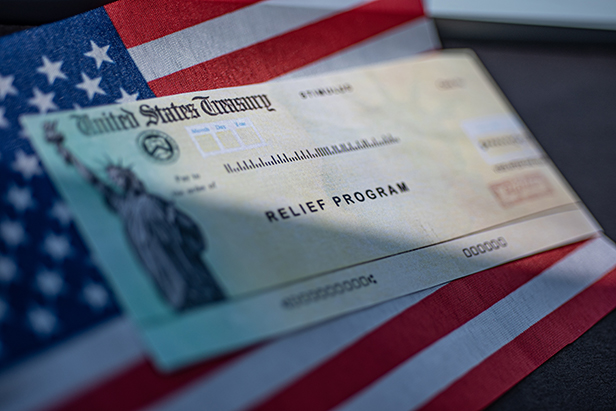December 01, 2020
$288 Billion in New COVID Relief Loans Proposed
The money would come as part of a broader $908 billion stimulus package that lawmakers proposed Tuesday, Dec. 1.
UPDATE Dec. 2:
After legislators introduced the $908 billion stimulus plan on Dec. 1, Republican Senate Majority Leader Mitch McConnell shot down the proposal. It remains to be seen if legislators will provide more relief to struggling American households and businesses before year’s end, but there was some talk among Congressional leaders that the plan could be used as the basis for further negotiations.
Federal lawmakers from the Republican and Democratic sides of the aisle on Tuesday, Dec. 1 unveiled a newly proposed economic stimulus package that, if approved, would include about $288 billion in small business aid such as Paycheck Protection Program (PPP) loans.

The proposed new injection of PPP money is part of an approximately $908 billion stimulus initiative aimed at mitigating the deleterious effects the coronavirus pandemic has had on U.S. businesses and the economic well-being of millions of Americans.
Whether or not Congress and the White House will sign off on the package is an open question. Democratic House Speaker Nancy Pelosi and Senate Majority Leader Mitch McConnell have so far not compromised on different stimulus plans that each has previously put forward. Leaders of the House and Senate haven’t had formal stimulus talks since Nov. 3.
Certain tenets of the stimulus package unveiled on Tuesday, Dec. 1 could potentially prove roadblocks to approval. For instance, Democrats have been opposed to temporary federal protection from coronavirus-related lawsuits, which this plan proposes. Meanwhile, Republicans have been against providing more state and local financial aid; the new package earmarks $160 billion in state and local government relief.
In addition, the package put forward by some bipartisan members of Congress on Dec. 1 would feature about $180 billion for supplemental unemployment insurance, $16 billion for COVID-19 vaccine distribution, testing and contact tracing, and $82 billion for education. It would also allocate money for rental assistance, childcare and broadband. As written, the proposal wouldn’t provide another direct payment to most Americans.
Certainly some legislators from both sides of the partisan divide are willing to compromise to get a new stimulus plan in place swiftly. Sen. Mark Warner, a Democrat representing Virginia and a member of the group of lawmakers that has worked on the new stimulus package, characterized the relief plan as an “interim package” that would provide much-needed immediate support to businesses and households until President-elect Joe Biden takes over the White House in January.
Warner said it would be the “worst self-inflicted harm in recent times” if federal leaders didn’t act to provide more relief, especially as economic life rafts that Congress set afloat earlier in 2020 are set to sink at year’s end. These include an unemployment insurance extension and eviction protections.
On COVID relief, @MarkWarner: "It would be stupidity on steroids if Congress didn't act before the holidays. The idea that people are going to lose their unemployment benefits the day after Christmas..." (1/2) #AMRstaff
— Andrea Mitchell (@mitchellreports) November 30, 2020
The news that more relief in the form of PPP or related loans could be on its way to small businesses will be welcome by many in the promotional products industry. Promo firms across the country applied for and received PPP assistance earlier this year as the economic shrapnel of the COVID-19 pandemic caused sales in the promo space to plummet, including a nearly 45% year-over-year drop in collective distributor sales in the second quarter.
The PPP launched on April 3, as part of the $2.2 trillion CARES Act. By April 16, the initial $349 billion PPP funding was gone, scooped up by businesses negatively impacted by shutdown orders related to the coronavirus pandemic. Congress approved a second $310 billion round of funding on April 27.